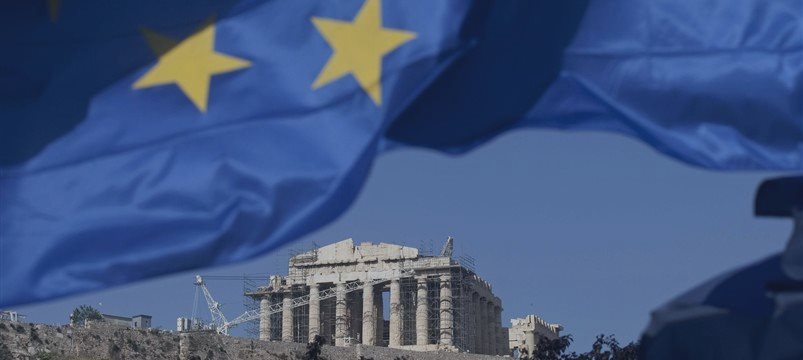
France's Sapin says euro zone should ease opposition to Greek requests
As a crucial meeting of euro zone finance ministers approaches, debt-laden Greece and Germany stick to opposite lines on the future of an unpopular international bailout for Athens. However, France called for compromise, says Reuters.
So far, Greece's euro zone partners have shown little desire to reduce Athens any slack on the austerity demanded in return for some 240 billion euros ($274 billion) in financial assistance.
If today's meeting brings no progress, Greece could be headed for a credit crunch that could force it out of the euro zone. At the same time, progress could mean further negotiations, perhaps later in the week.
German Finance Minister Wolfgang Schaeuble told German radio Greece had lived beyond its means for a long time and there was no appetite in Europe for giving it any more money without guarantees. But French Finance Minister Michel Sapin hinted at a slight easing of euro zone opposition to Greek requests for an end to austerity and a new debt deal, saying Europe must respect the political change in Athens.
Radical leftist Greek Prime Minister Alexis Tsipras's government was elected last month on a pledge to scrap the bailout, reverse austerity measures and get rid of supervision by the "troika" of the European Commission, the European Central Bank and the IMF.
When speaking on France 2 television, Sapin took a softer line than has been heard from the euro zone in recent weeks, saying that there was "fortunately" some chance of a deal. He appeared to be positioning France to try to broker a compromise.
Sapin said Germany had a point in insisting that Greece stick to commitments made to its creditors, but Athens was justified in saying the Greek people had mandated the new government to pursue a different policy.
"Greece must respect European rules... be we must respect the Greek people's vote. There is a new policy and we must help Greece put this policy in place," he said. No such flexibility was seen from from Schaeuble.
As talks have shown no results, bank deposit outflows have picked up in Greece. The ECB has authorized emergency funding for banks by the Greek central bank so far, but a failure in the talks could mean the imposition of capital controls.
Greek bond yields inched up on Monday but investors remained cautiously optimistic that Athens would reach a new debt deal with its European partners later in the day.
Euro zone break-up is unlikely
James Gorman, the chief executive of Morgan Stanley bank, said he thought the likelihood of Greece negotiating a debt restructuring were greater than the country being forced out of the euro. He also doubted that the monetary union was in danger.
"I believe a euro zone break-up is highly unlikely, for reasons that go beyond the economy... but if a country leaves the euro, this will not mean the end of the monetary union," he told Italian daily la Repubblica.
Tsipras has requested a bridge program to be put in place for a few months while a new debt relief deal is agreed to replace the existing bailout, which has already forced drastic cutbacks onto ordinary Greeks.
While he current bailout expires at the end of the month, last week's Eurogroup meeting ended without progress, although technical talks were later agreed and took place over the weekend to identify the gaps between the bailout scheme and the new government's plans.
Some of the problems facing the Eurogroup are semantic, Reuters says. The Greeks, for instance, will not approbate anything that reminds of an "extension" to the old bailout or a continued role for the "troika".
Tsipras, who came to power on a wave of anti-austerity and anti-bailout anger, would have a hard time explaining concessions so soon. But an "extension" may not prompt many euro zone national ratifications unless it involves additional financial commitments from euro zone governments.
On the other hand, any new financing program may need several national parliamentary ratifications and could also bring Germany's Constitutional Court into play.
Among those requiring a parliamentary vote on a new bailout are Germany, Slovakia, Estonia and Finland, all identified by one veteran of EU meetings as part of a hard core of opponents to Greece's plan.
The Eurogroup's main debate will revolve around how to fund Greece until any new debt deal. Athens wants to reduce the primary budget surplus before debt service it is required to run, scrap privatizations, raise the minimum wage and spending on the poor, and reverse some labor reforms.
Greece said on Saturday that it was reviewing a 1.2 billion- euro deal for Germany's Fraport to run 14 regional airports, one of the biggest privatization deals since Greece's debt crisis began in 2009. It has also pulled the plug on the privatization of the ports of Piraeus and Thessaloniki.


